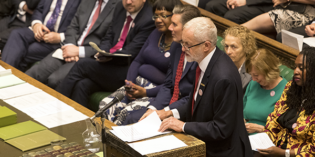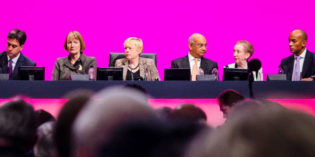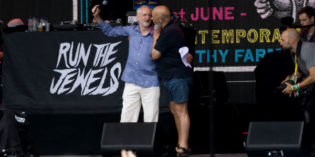Jeremy Corbyn

Who is the Leader of the Opposition?
David Howarth explains the legislation and parliamentary rules that determine who is recognised as the official Leader of the Opposition in Parliament. The political implications of these procedures are significant, given current discussions about who would form a government if the current one were to lose a vote of no confidence.

Digital technology is changing party politics, the interesting question is how
It is evident from the 2017 general election, writes Kate Dommett, that digital technology has been fully embraced by political parties and incorporated into campaigning strategies. It is also creating opportunities for satellite campaigns to mobilise citizens. Longer term, digital innovations have the potential to reshape the nature of engagement between citizens and parties, though these more fundamental changes are not yet being implemented.

Many Labour MPs have still to unequivocally reject ‘roll-out’ neoliberalism
Chuka Umunna recently defended the last Labour government against a left-wing critique that its modus operandi was fundamentally neoliberal. Ewan Gibbs and Sean Kippin argue this does not consider the nature of neoliberalism, particularly the distinction between its ‘roll-back’ and ‘roll-out’ variants. They argue that New Labour’s approach was indeed of the latter type.

Corbyn’s rent controls: radical new housing policy, or just rhetoric?
If there is one thing that Labour and Conservatives currently have in common, it is that both appear ready to embark on a step change in housing policy. But are Jeremy Corbyn’s recent announcements on rent controls a sign of change, or just another new political language for ‘masterly inactivity’? Ben Pattison (Sheffield Hallam University) reviews Labour’s […]

Does protest really work in cosy democracies?
Does protest work? And is it more effective when it takes places in countries ruled by repressive regimes, or those with democratically elected governments? Steve Crawshaw (Amnesty International) argues that if we think nothing will change, as people often do in democracies, that lack of belief becomes self-fulfilling. Similar PostsBook Review | A Duty to Resist: […]

Book review | Guilty Men – the Brexit Edition, by Tim Oliver
Brexit is as big and dangerous a mistake as that of appeasement in the 1930s. So argues Cato the Younger in his book Guilty Men: Brexit Edition, reviewed here by Tim Oliver. Taking up the pen of his great grandfather, whose 1940 book of the same name destroyed the reputations of those responsible for appeasement, Cato the Younger is no […]

Inheritance, patriarchy, the social contract: the perils of invoking ‘generation’ in politics
Generation is a pivotal concept in contemporary politics, but not enough attention is paid to the way in which it operates ideologically. Ben Little and Alison Winch explain the different meanings of generation in political culture – which originated when Edmund Burke invoked the concept to bind people to the state – and highlight the tension between them. […]

New parties, new movements: but how much say do party members get?
The Political Party Database Project has analysed the workings of 122 political parties in 19 parliamentary democracies. Remarkably, the vast majority share a common model of subscriber democracy: members join at a local level and enjoy a certain amount of say in the party’s direction. But in recent years a wave of new political movements, […]

Long read: Public opinion, legitimacy and Tony Blair’s war in Iraq
The Labour Party is still living with the consequences of Tony Blair’s decision to join the US in waging war in Iraq. It destroyed Blair’s credibility and fed the backlash against the ‘moderate’ wing of the party which eventually led to Jeremy Corbyn’s election. In this post, based on his new book, James Strong traces […]



 Democratic Audit's core funding is provided by the Joseph Rowntree Charitable Trust. Additional funding is provided by the London School of Economics.
Democratic Audit's core funding is provided by the Joseph Rowntree Charitable Trust. Additional funding is provided by the London School of Economics.